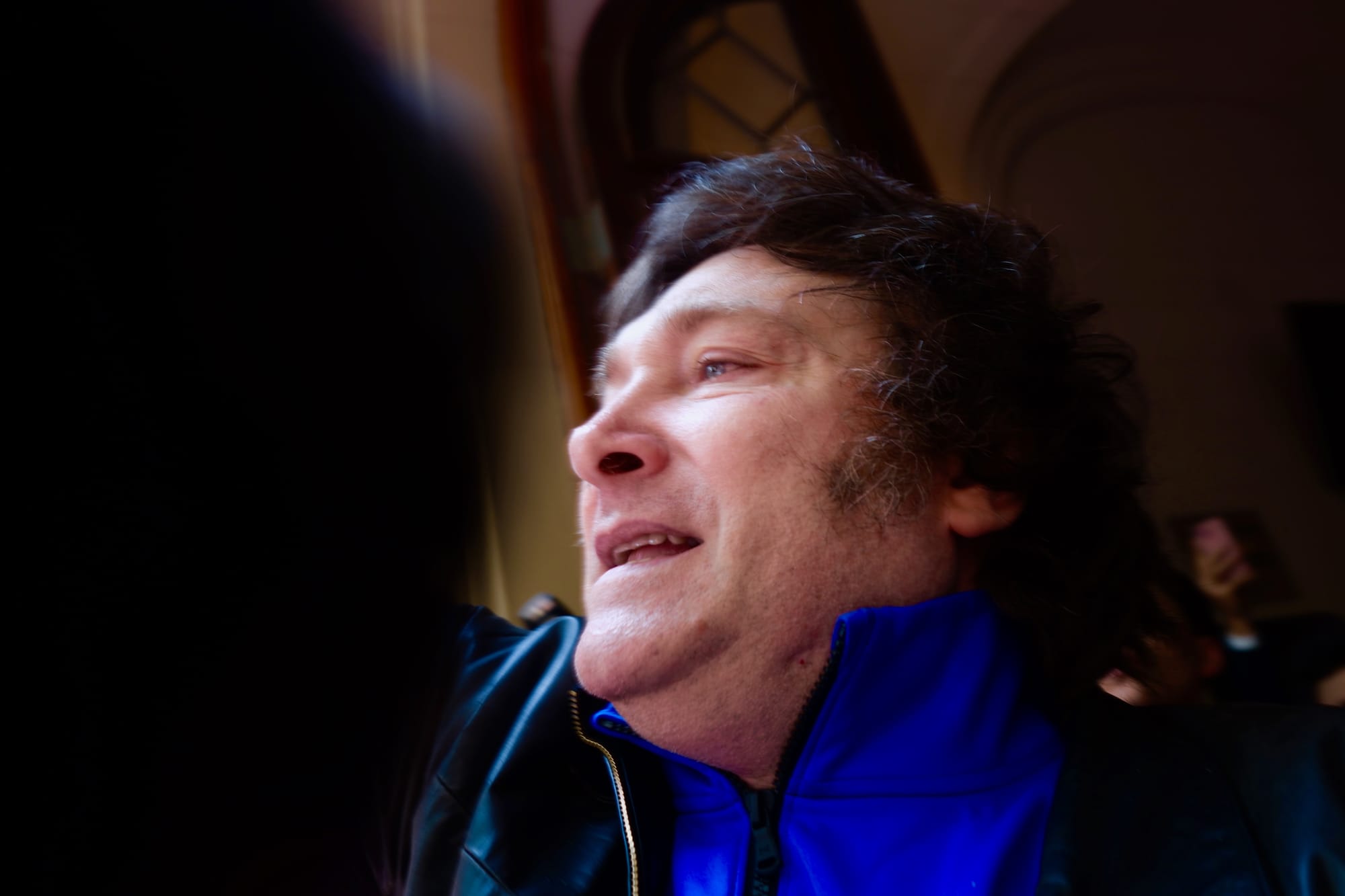Argentinian President Milei to answer for regressive social policies

Argentinian president Javier Milei was summoned to the Inter-American Commission of Human Rights (IACHR) last week to answer for his administration's regressive social policies since his election last year.
Lawyers, human rights activists, unions and NGOs filed complaints against the self-described 'anarcho-capitalist' to the Commission, which held three hearings in Washington on 14 November. Juliana Miranda of the Centre for Legal Studies, one of the petitioners, described it as a ‘crucial’ moment in the country.
‘The hearings show that international mechanisms are taking notice that the human rights situation is in fact deteriorating in Argentina,’ she said.
The first hearing tackled the Milei administration's dismantling of social policies and food insecurity. Milei, who campaigned with pledges to fix the decades-long economic crisis, has slashed public spending in an effort to tame chronic inflation and eliminate the budget deficit. While he has indeed succeeded in lowering monthly inflation, his austerity measures have hit the poorest hardest. Over half of the population is now living below the poverty line, while soup kitchens are on the brink of closure.
The second hearing focused on the eradication of gender-based violence. Argentina has long been known as one of Latin America’s most socially progressive countries, and was one of the first in the region to legalize abortion in 2020. But Milei has regularly attacked abortion rights as ‘aggravated murder’. He has denied feminism as an ‘unnatural battle between man and woman’, dissolved the government department for tackling gender violence, and in October was the only leader of a G20 country to reject calls for gender equality.
The final hearing interrogated the ‘impact of memory, truth and justice policies’. Milei’s La Libertad Avanza party has consistently denied Argentinians’ long-standing consensus over the crimes committed by its bloody dictatorship in 1976-1983, in which an estimated 30,000 people were forcibly disappeared. His administration recently disbanded the archive team which had helped to bring dozens of dictatorship criminals to trial, and the president himself has denied the number of disappeared.
‘There were no 30,000,’ Milei said ahead of his election triumph last November.
‘It is the first time in many years that civil society in Argentina has had to come to the IACHR to report serious setbacks in memory public policies,’ said Claudia Poblete Hlaczik, who was kidnapped by the military dictatorship as a baby after her parents were forcibly disappeared. ‘The national government is dismantling and defunding [many programs] with the excuse of economic adjustment. They are revindicating a view on state terrorism that only seeks to obtain impunity for the perpetrators.’
The hearings came in the same week that Milei – a climate change denier – recalled his delegation from the ongoing COP29 climate talks in Baku, Azerbaijan. Officials have indicated that the president may also withdraw from the Paris Climate Agreement, while his administration was also the only country to reject the UN Indigenous People’s rights resolution last week.
The State and the civil society petitioners have now been invited to submit additional answers to the questions asked by the Commission during the hearings. The IACHR will then present a ruling and potentially request a country visit to Argentina, though no time frame has been set.
Milei, meanwhile, skipped the hearings to fly to Mar-a-Lago to meet US president-elect Donald Trump.
MAGA pic.twitter.com/p2Me1fF6IO
— Javier Milei (@JMileiElecto) November 15, 2024
— Harriet Barber (@harrietmbarber)
📰 Read more about President Milei in our Hall of Infamy
🔎 Explore our Abortion Justice issue to learn more about how Argentinian feminists are mobilizing to defend the country's landmark 2020 abortion law.
👉 Support Abuelas de Plaza de Mayo who run regular campaigns searching for the grandchildren of the forcibly disappeared
✊ Get involved with the Centre for Legal and Social Studies' volunteer program to defend human rights in Argentina
📅 Explore our Currents Calendar for all upcoming events and activities
Like what you've read? Support us with a tip.
Are you a freelancer? Pitch us a story.

